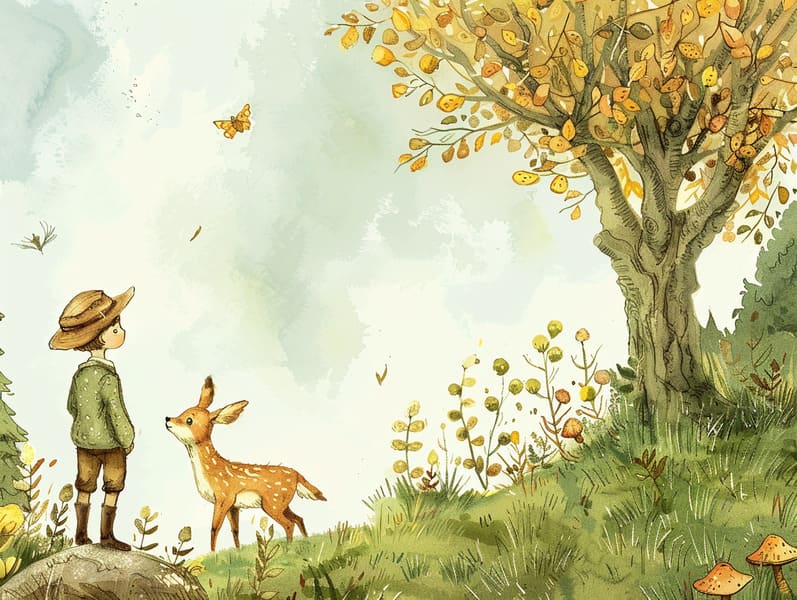Appreciating the Charm of Nighttime Tales: Developing Cherished Times with Your Loved Ones
Appreciating the Charm of Nighttime Tales: Developing Cherished Times with Your Loved Ones
Blog Article

Nighttime is a treasured time for moms and dads with their little ones. It’s a occasion to unwind, get cozy, and revel in the charm of bedtime stories.
For years, bedtime stories for kids have been a valued habit, offering more than just a way to drift off. They provide an opportunity for bonding, growth, and fostering imagination.
How Bedtime Stories Benefit Kids
Evening stories for little ones serve more than a way to close the day. They play a significant role in a child’s evolution and in reinforcing the parent-child rapport. Here’s why they matter:
1. Connection Time: Telling bedtime tales encourages a special time of affection between kids and their parents. It’s a moment of closeness that helps children feel appreciated and content.
2. Language Development: Experiencing stories helps children develop their speech skills. They pick up new expressions, understand construction, and refine their understanding and understanding abilities.
3. Creative Development: Nightly stories move them to wondrous worlds, sparking creativity. They envision characters, settings, and adventures, which stimulates their imagination.
4. Emotional Skills: Stories for children often showcase characters facing challenges and sentiments. These plots help kids understand and manage their own sentiments, enhancing emotional intelligence.
5. Cognitive Development: Listening to a tale helps children develop mindfulness, retention, and thought processes. They enhance to follow lines of thought, remember elements, and guess endings.
Incorporating Stories into Bedtime
Developing a night-time practice that includes narrating bedtime stories is doable and rewarding. Here’s how to turn it into a cherished part of your nightly ritual:
1. Select a Comfortable Location: Choose a cozy place where you and your child can snuggle up without intrusions. A cozy bed or a cozy reading nook works great.
2. Choose a Set Time: Pick a designated time each night for reading. Consistency helps children be prepared and makes the tradition simpler to continue.
3. Select Age-Appropriate Stories: Choose tales that fit your child’s understanding. Little kids might prefer visual books with straightforward tales, while grown children may be drawn to detailed stories with more complex plots.
4. Get Involved with the Story: Turn the tale come alive by doing different voices for characters, adding story sounds, and inviting your child to be involved. Ask questions about the story to keep them engaged.
5. Make a Peaceful Setting: Turn down the lights, use hushed tones, and create a relaxing environment to help your child settle down.
Top Places for Bedtime Stories
There are many sources where you can find perfect bedtime stories for children. Here are some places to think about:
1. Books for Children: Try your neighborhood library or bookstore to find a great selection of bedtime stories for kids. Going through the shelves together can be a delightful activity that also permits children to find stories that appeal to them.
2. Online Sources: There are many places online that offer free bedtime stories. Sites like children's story websites provide a read more variety of short stories for kids that you can access. These choices are great for finding new and assorted stories without payment.
3. Apps and Audiobooks: For nights when you’re too worn out to read, think about audiobooks or storytelling apps. These can provide a quiet narration to read your child a story, ensuring they still get their bedtime story fix. Apps often offer interactive elements that can keep kids interested further.
4. Custom Stories: Compose your own stories inspired by your child’s passions. Personalized stories can be very engaging and meaningful. You can get your child in the creation process, making them a part of the adventure.
Why Brief Stories Are Best
Concise stories for kids are extremely advantageous for bedtime. They provide all the good points of longer stories but are more succinct, making them perfect for getting ready for bed before sleep. Here’s why short stories are a ideal choice:
1. Simple and Clear: To-the-point tales are uncomplicated and easy for children to follow, even after a long day. They can easily grasp the plot and enjoy the story without becoming uninterested.
2. Immediate Interest: Brief tales quickly engage children, grabbing their engagement and creativity. This makes them great for keeping bedtime rituals easy yet enjoyable.
3. Diverse Options: Short stories create for variety in your bedtime books. You can select a different story each night, keeping the habit exciting and exciting for your child.
4. Time-Saving: For busy parents, to-the-point tales are a efficient way to make sure children still get their nightly dose of storytelling. They fit well into a crowded schedule while still offering the full plusses of a bedtime story.
The Joy of "Read Me a Story"
The simple phrase, “Read me a book,” can give a world of magic for children. Responding to this request not only fulfills a child’s desire for attention and engagement but also creates lasting memories. Here’s why it’s magical:
1. Attachment: Telling tales to your child builds a deep emotional relationship. It’s a time for proximity, sharing, and bonding.
2. Ritual: Establishing a bedtime story practice creates a valued tradition that children anticipate every night. It’s a ritual that can be shared through generations.
3. Shared Learning: As you tell tales, you’ll witness your child’s evolution and growth. Their engagement, reactions, and understanding of the stories change, offering insights into their developing minds.
4. Comfort Zone: Bedtime stories provide a safe space for children to navigate emotions, face fears, and find comfort in the reliable presence of a parent.
Summary
Sleep stories for kids are a vital tool for supporting a child’s progress and forming unforgettable memories of togetherness.